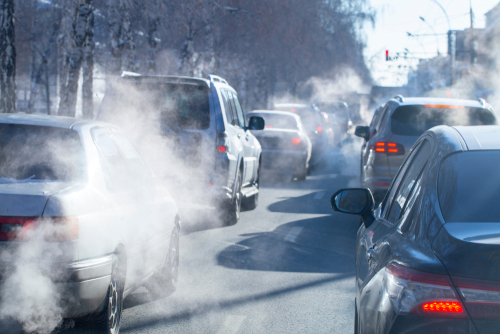
On Wednesday, U.S. Reps. Yvette Clarke (D-NY) and Doris Matsui (D-CA) joined U.S. Sens. Edward Markey (D-MA) and Alex Padilla (D-CA) in urging the Environmental Protection Agency (EPA) to issue new rules for vehicle emission standards.
In a letter to EPA Administrator Michael Regan, the lawmakers asked that the agency quickly release new proposed emission standards for light- and heavy-duty vehicles from model year 2007 and later. The rules are essential for the country to meet greenhouse gas emission reduction targets, the group said, as well as to protect communities.
“There is no doubt that the burden of climate change disproportionately falls upon our most vulnerable populations in historically overburdened communities,” Clarke said. “We have a moral obligation to ensure our work to fight the climate crisis is centered around equity and championing environmental justice. These standards will not only meet the Clean Air Act’s standards to protect public health and welfare, but position the U.S. as a leader in zero-emission vehicle technology development and manufacturing, provide high-quality job creation, and reduce burden on frontline communities.”
The letter urges the agency to issue its proposed rules by the end of the month and to ensure they align with U.S. commitments to the Paris Climate Agreement and greenhouse gas (GHG) emissions reduction. Those commitments include reducing GHG emissions from new light-duty vehicles sold in 2030 by 75 percent; ensuring light- and heavy-duty standards support greater zero-emission vehicle adoption; putting the country on track to see 100 percent of all heavy-duty vehicles sold in 2035 are zero-emission vehicles; and reflecting state emission standards.
“Expanded federal investments in clean vehicles mean EPA can and must issue new tailpipe emissions standards for both cars and trucks that will both clean the air and address the climate crisis,” said Marc Boom, director of federal affairs at the Natural Resources Defense Council. “The strong support from members of Congress demonstrates that clean vehicles are not only good for the environment but good for our health, our economy, and our pocketbooks.”
The letter was signed by more than 50 other members of Congress.